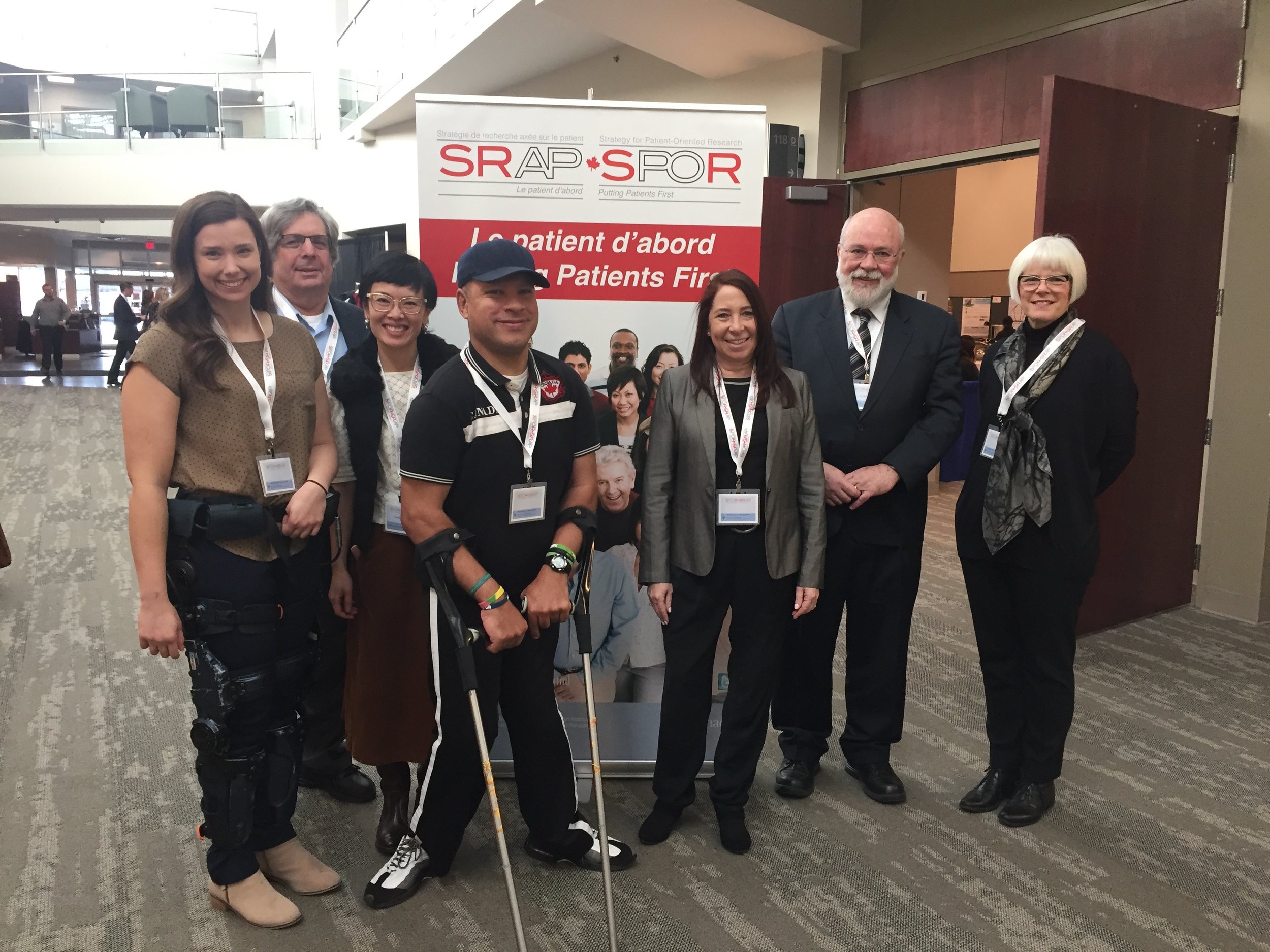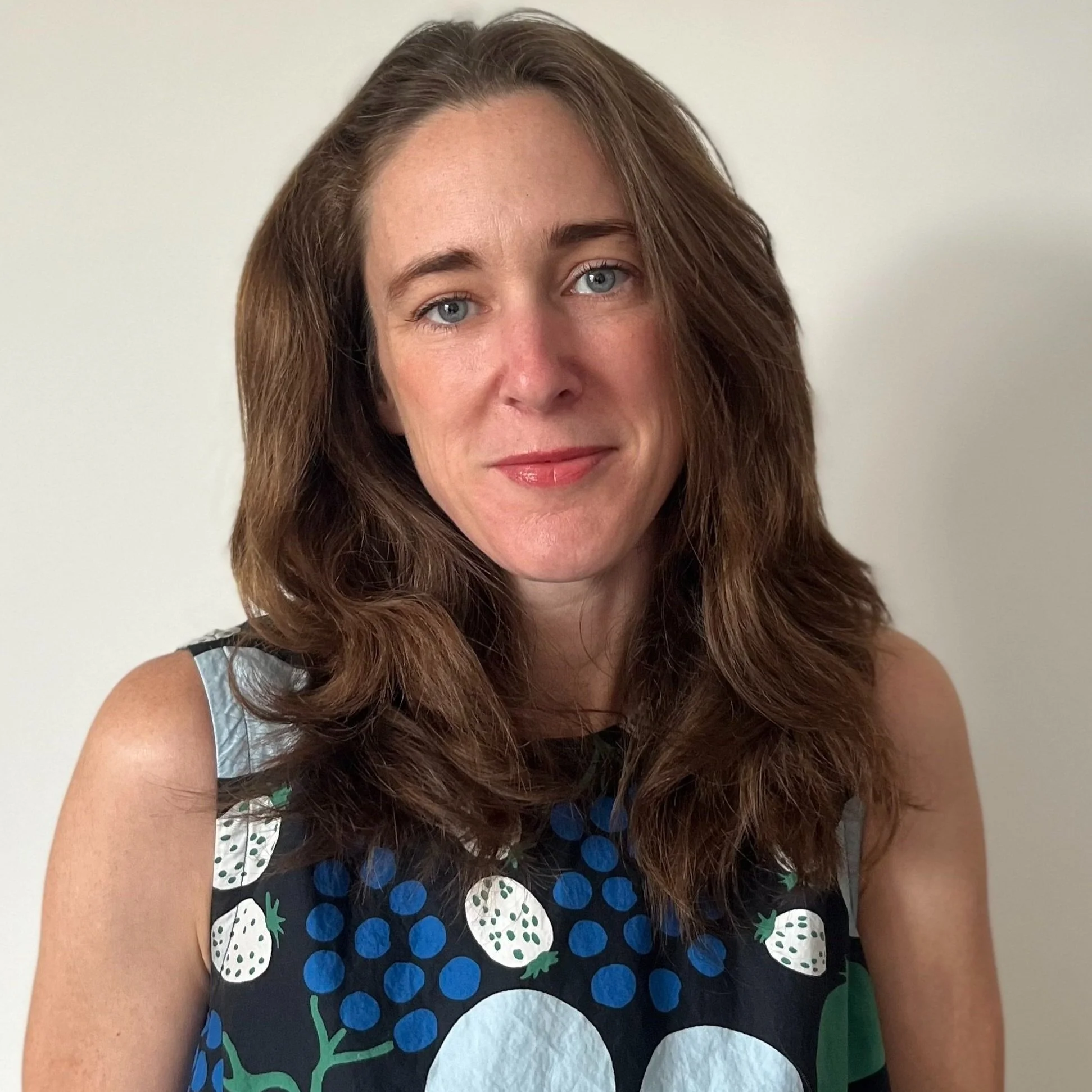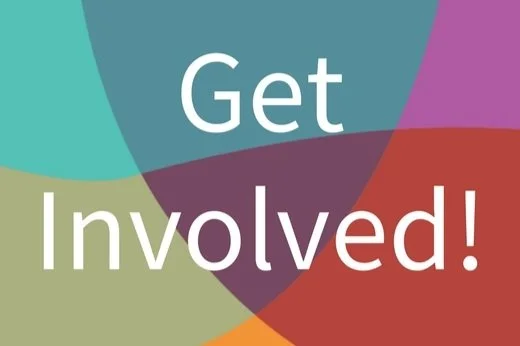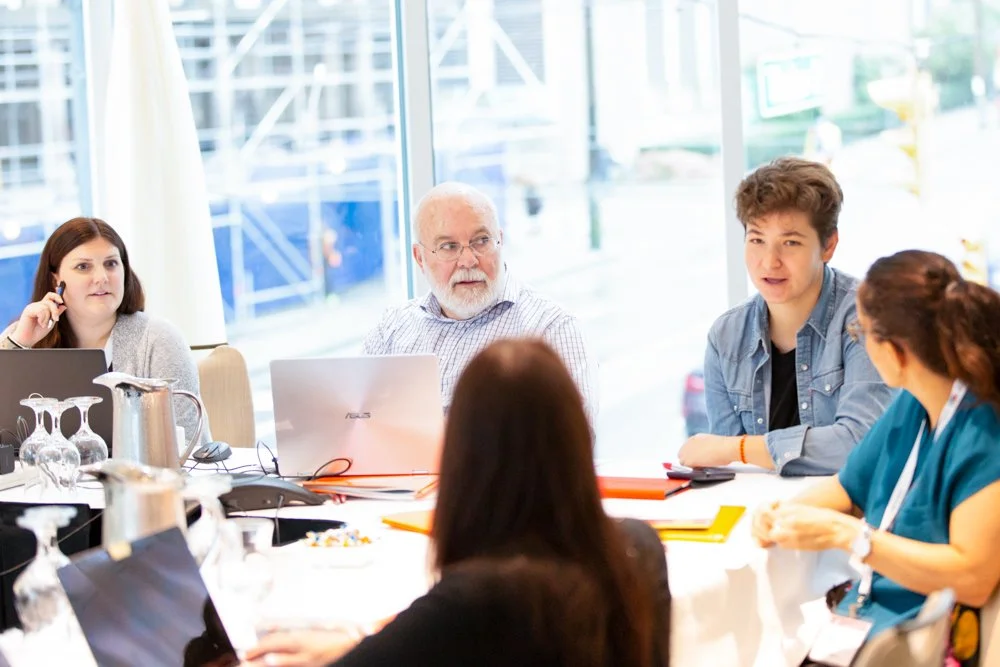Engagement Program and Projects Manager
Corinne Lalonde
Email
““In 2015, we met with 80 interested parties in person and polled over 900 youth and families affected by brain-based disabilities. We wanted to hear their priorities and concerns and learn more about what was important to them. Based on their input, CHILD-BRIGHT was born.””
At CHILD-BRIGHT, partners with lived and living experience (PWLEs, formerly referred to as patient-partners) have been at the centre of our work since before our network was established in 2016. We understand that PWLEs are experts on their health experiences and needs, and we look to them to provide us with insights that will influence our priorities, research study design, and outcome measures, as well as the interpretation and use of our findings.
As a network working under Canada's Strategy for Patient-Oriented Research (SPOR), we aim to engage all people affected by brain-based developmental disabilities, especially PWLEs, as meaningfully as possible in all aspects of our work. As part of CHILD-BRIGHT’s Phase 2 funding, we are continuing to monitor and enhance partnerships and assuming leadership nationally in promoting patient-oriented approaches to child health research. The Engagement Program (formerly the Citizen Engagement Program) is also working closely with the EDI-DI Program to engage PWLEs and other groups who are underrepresented in the network. This important work will ensure that the rights of children with disabilities of diverse backgrounds and abilities are respected and met.
Research partners from many fields and backgrounds, including youth with disabilities and their family members, come together to collectively shape our work.
Why do patient-oriented research?
Because it's important to involve people who have first-hand experience with the disability or disease.
Because all parties should be represented fairly and equally.
Because PWLEs will often identify research priorities and/or outcomes of importance that are different from those identified by researchers.
Because we want to improve the quality of the research.
Because we aim to increase the number of PWLEs supporting research.
why some of our members got involved in patient-oriented research
What are the benefits of PWLEs participating
in health research?
PWLEs become competent members of the research team, influencing all phases of the project as experts.
PWLEs can ensure that the research is highly relevant and more likely to be taken up and used to improve health care.
All those involved in the research, including PWLEs, share a strong sense of purpose to improve the lives of children with brain-based disabilities and their families.
Our services
CHILD-BRIGHT LIVED and living EXPERIENCE CONSULTATION SERVICE
After more than six years of refining its approach to engagement, CHILD-BRIGHT has formed strong relationships with youth and parent research partners across Canada. In turn, these PWLEs have become experts at consulting with patient-oriented research projects focused on childhood brain-based developmental disabilities. To leverage this shared capacity, we launched our CHILD-BRIGHT Lived and Living Experience Consultation Service for researchers external to CHILD-BRIGHT, to engage CHILD-BRIGHT members on their own research projects. Learn more about our consultation service or apply today.
Read about the prior consultations supported by our youth members:
Matching researchers and PWLEs
We strive to help match community members to ongoing opportunities within our network. If you are a researcher looking to engage a PWLE on your project, or if you are a PWLE interested in becoming a research partner, write to us today.
Our initiatives
We ensure fair compensation for all involved in research
We aim to be leaders in Canada in relation to fair compensation for all involved in research, governance, and other research network activities. Download our compensation guidelines.
WE engage at multiple levels
As part of our mandate under Canada's Strategy for Patient-Oriented Research, we track and demonstrate that we involve community members and youth in all aspects of our research. Learn how we measure engagement.
WE STUDY AND DOCUMENT THE EVOLUTION OF ENGAGEMENT IN OUR NETWORK
We surveyed our members to assess engagement at CHILD-BRIGHT. Read our three-part report looking at how the engagement of PWLEs has unfolded across our network between 2018 and 2020. Read an article about the results of these measurement efforts or consult a lay summary of the article.
We recognize PWLEs who show great leadership
In 2021, we launched the Frank Gavin Patient Engagement Leadership Award. Created in honour of our inaugural Director of Engagement, this award provides us with an opportunity to recognize PWLEs who show exceptional engagement and leadership in research related to children with brain-based developmental disabilities and their families.
Meet our previous winners:
Our resources
TooLS for ENHANCING PATIENT-ORIENTED research
Since 2016, we have developed several resources from lessons learned to enhance patient-oriented research. Soon, these resources will become part of a toolkit to support capacity building for investigators in child health research institutes and centres across Canada. We have also developed tips for PWLEs and researchers involved in patient-oriented research, which is available for you to consult.
CONTRIBUTING TO RESEARCH PAPERS AS A CHILD-BRIGHT PARTNER WITH LIVED AND LIVING EXPERIENCE
Partners with lived and living experience who want to learn more about research co-authorship can consult the infographic below, which breaks down the role and responsibilities associated with co-authoring a scientific article.


































